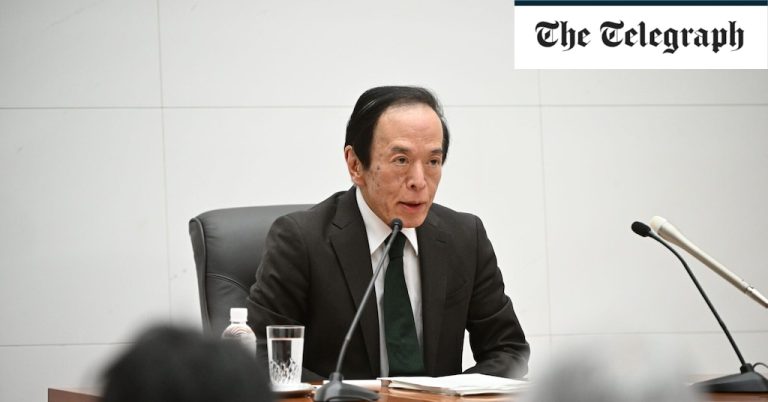Thanks for joining me. The Bank of Japan has ended eight years of negative interest rates, making a historic shift away from a focus of reflating growth with decades of massive monetary stimulus.
The move was Japan’s first interest rate hike in 17 years but still keeps rates stuck around zero.
5 things to start your day
1) Britain’s energy system will not hit net zero until 2035, National Grid tells Labour | Accelerated timeline for a carbon neutral grid would weigh more heavily on bill payers
2) Mike Lynch masterminded ‘multiyear, multilayered fraud’, court hears | Tech entrepreneur accused of spinning ‘fabulous tale’ to lure HP into $11bn Autonomy deal
3) Heathrow has lost its status as a global transport hub, says Dubai Airports boss | Former Gatwick chief says the West places too much emphasis on environmental concerns
4) Electric lorry maker backed by David Beckham collapses into administration | Troubled Lunaz Group blames Sunak’s decision to delay ban on petrol car sales
5) Encyclopedia Britannica plots $1bn stock market listing | Move to go public would mark a watershed moment for the 250-year-old publisher
What happened overnight
Shares were mixed in Asia after the Bank of Japan hiked its benchmark interest rate for the first time in 17 years, ending a longstanding negative rate policy.
In a widely anticipated move, the Bank raised its overnight call rate to a range of 0 to 0.1pc, up from minus 0.1pc.
It said that wage increases and other indicators suggested that inflation had stabilized above the Bank of Japan’s 2pc target, but noted “extremely high uncertainties,” including weakness in industrial production, exports, housing investment and government spending.
Market reaction was muted.
Tokyo’s benchmark Nikkei 225 index closed higher by 0.7pc, or 263.16 points, to end at 40,003.60, while the broader Topix index climbed 1.1pc, or 28.98 points, to 2,750.97.
Chinese markets declined. Hong Kong’s Hang Seng index lost 1.2pc to 16,543.08 while the Shanghai Composite index dropped 0.4pc to 3,073.93.
In Seoul, the Kospi fell 1.1pc to 2,656.26.
Australia’s S&P/ASX 200 added 0.4pc to 7,706.80 after Australia’s central bank kept its benchmark interest rate steady at 4.4pc for a third consecutive meeting. The widely expected decision reflected the fact that inflation is cooling but still above the Reserve Bank of Australia’s target.
US stocks rose on Monday, with the S&P 500 adding 0.6pc, to 5,149.42. The Dow Jones Industrial Average rose 0.2pc to 38,790.43 and the Nasdaq Composite index rose 0.8pc to 16,103.45.
In the bond market, the yield on benchmark 10-year US Treasury bonds rose to 4.33pc from 4.31pc late on Friday.
